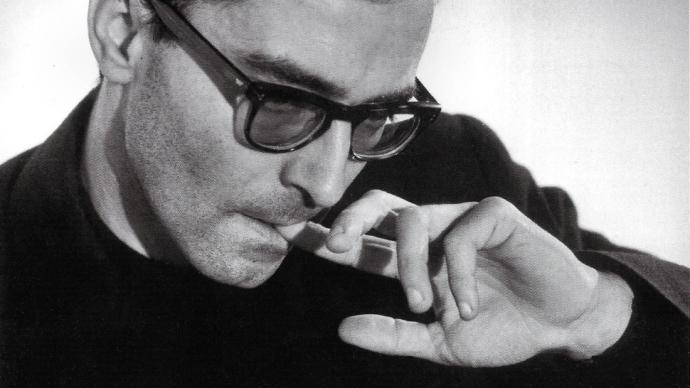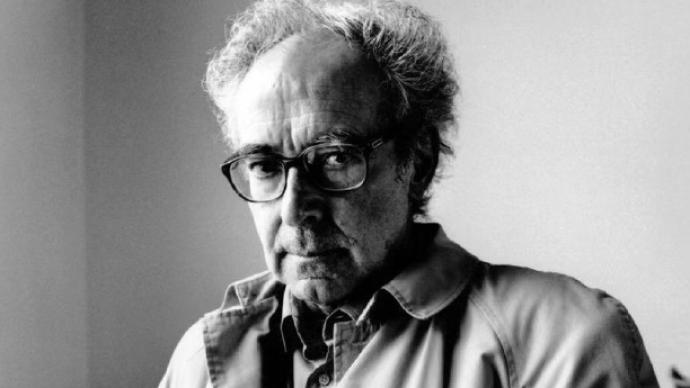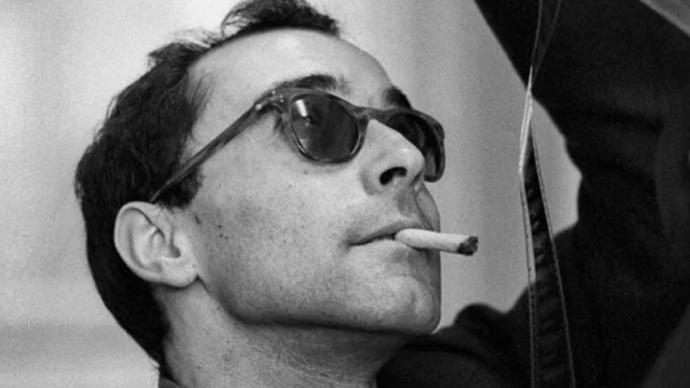
After the death of the famous French New Wave director Jean-Luc Godard, the British "Guardian" gave Michael Lee, Martin Scorsese, Luca Guadagnino, Isabelle Huppert and other films from all over the world. People send emails asking them to talk about what they know and think about him and his work. These filmmakers all told the truth, either revered or puzzled, and what they all had in common was that they all regarded Godard as a name that could not be ignored in film history.
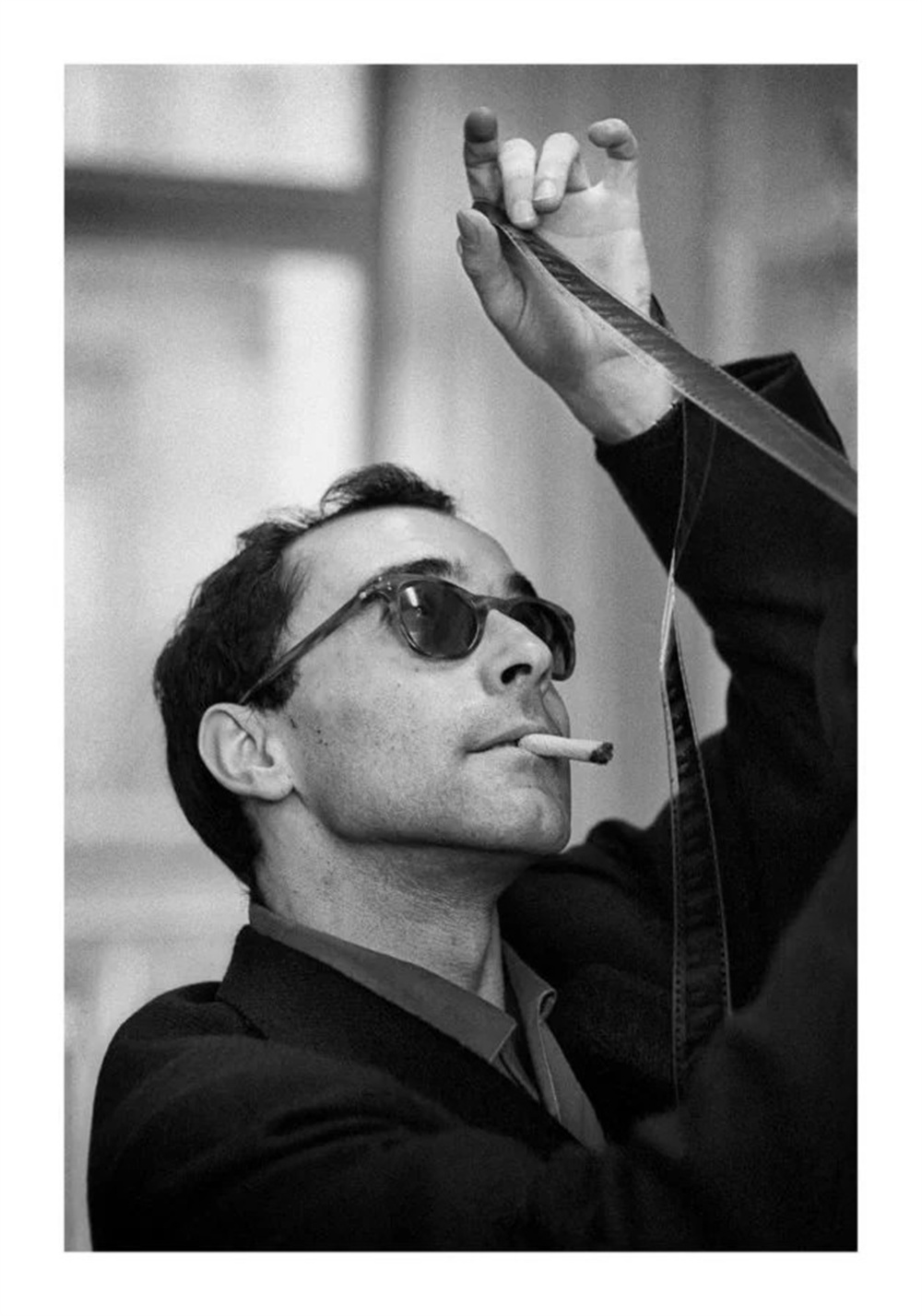
Jean-Luc Godard
"No one but Godard has dominated the narrative innovation of films in those years"
Mike Leigh, British director, representative works: "Secrets and Lies", "Vera Drake", "Another Year"
Godard's death left me with a low mood, many memories and grief - although I still have reservations about the eccentricity of his later works, and I believe that there should be many people who feel the same way. I think back to 1960, when I was 17 years old, the age when I liked watching movies the most. I just came to London from my hometown of Salford, and caught up with "Exhausted" which set off the major cinemas in London. Before that, all I watched were British domestic films and Hollywood films, and I had never seen a foreign language film. "Exhausted" is really exhausting to watch. The free-spirited location shooting, the spontaneous and believable performances, the outlandish and eccentric ideas... are everywhere challenging the audience's inherent concept of the film: it is the purest anarchist happy paradise!
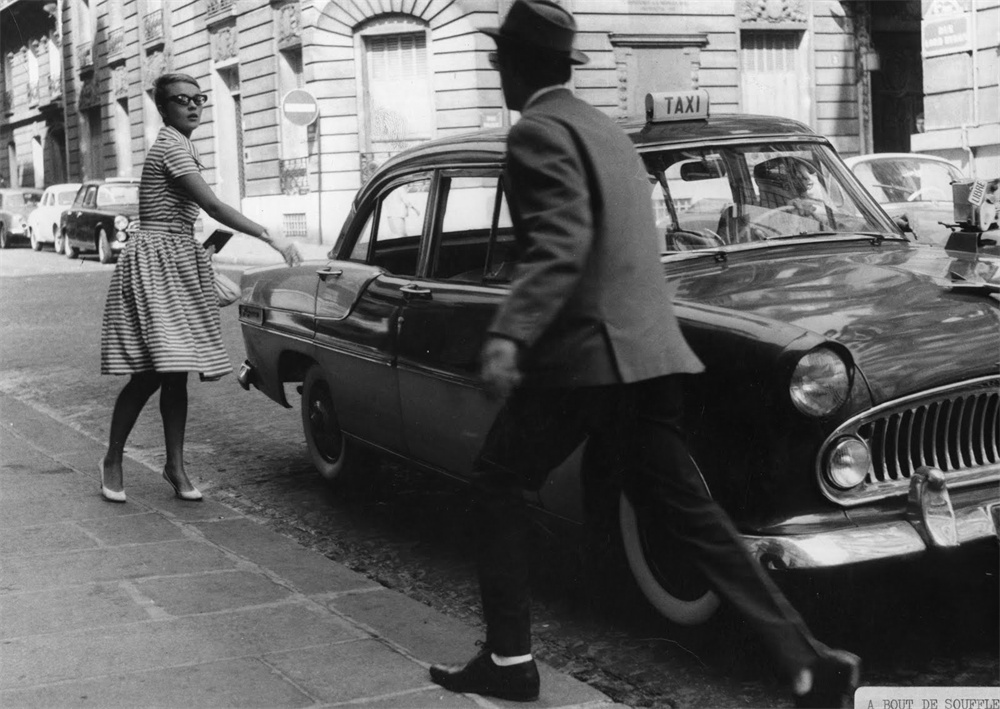
"Exhausted"
Of course, I've been in contact with many other foreign directors since I came to London, especially Truffaut - by nature, I probably prefer "The Four Hundred Blows" and "Jules and Jim" to any of Godard's work. But the fact is that there was no one other than Godard who led the innovation of film narrative in those years. He releases a new film a year, and my comrades and I are eager to come, and every time after the show, we will argue about the film until midnight.
My favorite works by Godard: "Lay Live", "Carbine", "Outlaw", "I Know A Little About Her". Later, somehow, my preference for "Weekend" added up.
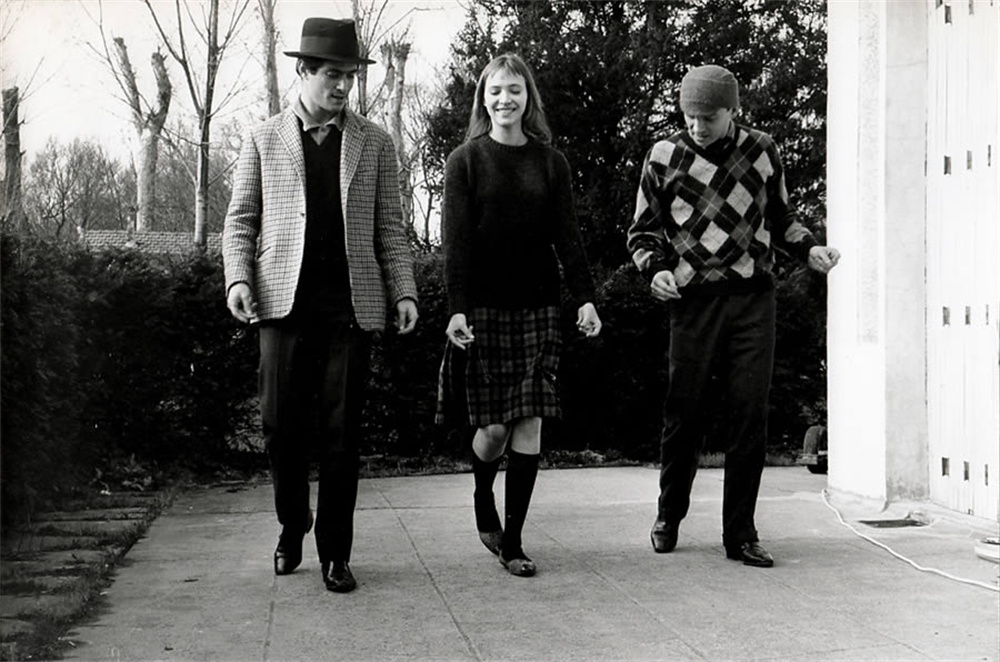
"Outlaws"
"His movies will wake you up from your sleep"
Martin Scorsese, American director, representative works: "Taxi Driver", "Goodfellas", "Raging Bull"
Beginning with "Exhausted", Godard redefines what a film is and what it can be made of. On boldness, no other director can compare to him. Look at "Lady" or "Contempt" or "Made in America" and you realize he's right in front of you, taking his movie apart and putting it back together again. You never know what will happen in the next moment, or even what the next frame will turn out to be - this is him, every frame is put into thought.
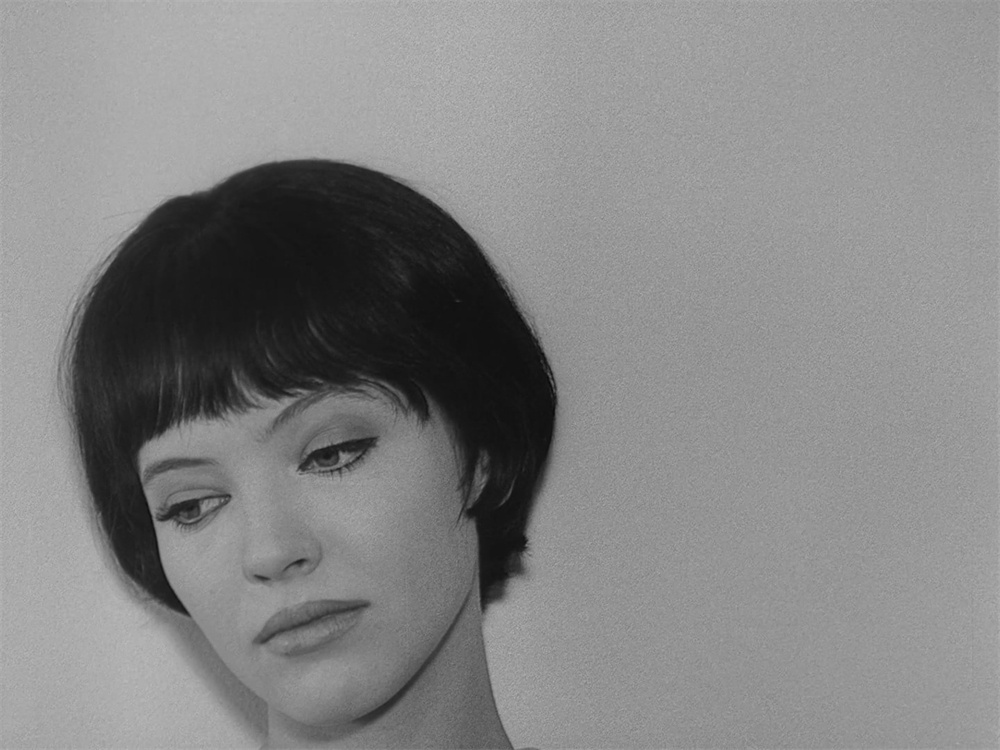
"Rai Live"
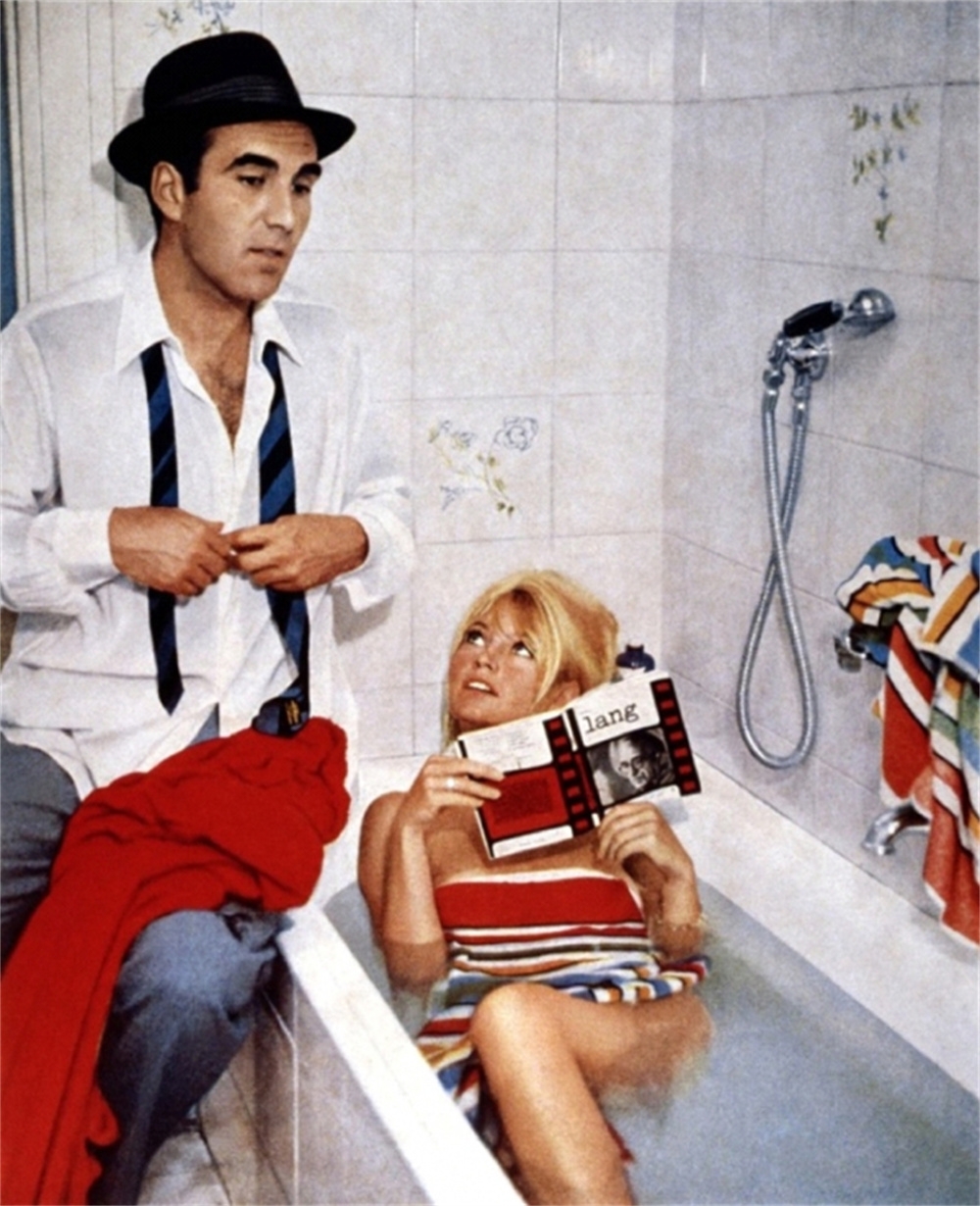
"Contempt"
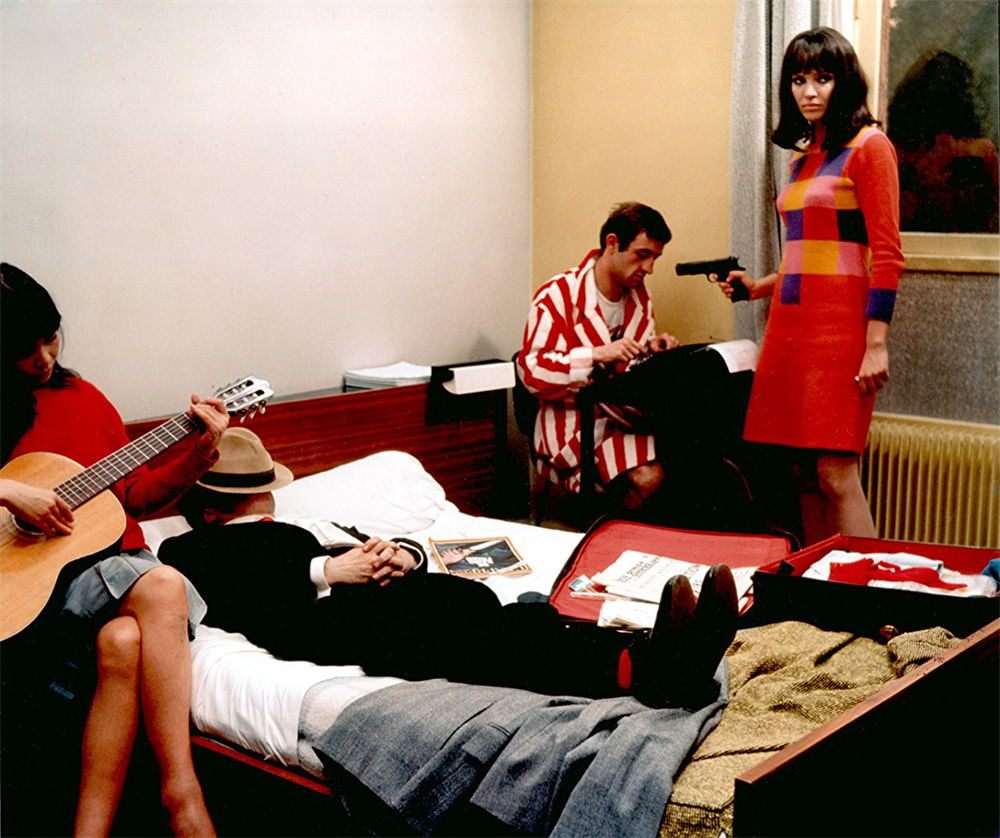
"made in America"
None of his films are satisfied with the same rhythm, the same mood, or the same perspective from beginning to end. Watching his films, you don't feel like you're being transported into some kind of dream, on the contrary, they wake you up from your sleep, no matter how many times you rewatch it. It is difficult to accept the fact that he died, but if there is any artist who can still rely on his works to leave traces in the world after his death, it is Godard. The relationship between the film and the audience has become more and more one-way, and the audience is more and more like a purely passive audience. At this time, the difference between Godard's films is even more obvious.
"The sea of stars and seas that are always incomprehensible"
Paul Schrader, American screenwriter and director, representative works: "Taxi Driver", "Raging Bull" and "Blue Collar"
The film is divided into before Godard and after Godard. It took him fifteen years to disassemble the movie, put it together and then disassemble it again, and finally made the movie a Rubik's Cube in his hand. Godard, like Bob Dylan, was a sea of stars and seas that could never be understood in their era.
Godard is a master of quoting tricks, so he should appreciate what Marlene Dietrich's Tanya said about Hank Quinlan in "Gone with the Wind": "That's who he is. You How do you judge him, and what does it matter?"
"Making a movie is going to be something that occupies every moment of my life"
Carol Morley, British director, representative works: "Fall" and "Suddenly"
The first time I saw a Godard film was in my film class at university. I was 23 years old at the time, and my film knowledge was fairly poor. The teacher played "All is Well" for us, and the whole movie is about a strike in a sausage factory. After the movie was over, I was completely stunned, what did the movie say? How could such a movie exist? The teacher asked us, what is the difference between "Everything is Okay" compared to other films we have seen in the past? This made me speechless for a while - the kind of touch it brought was difficult to put into words at the time, but I clearly remember a classmate who replied that she felt that the biggest difference in "Everything is OK" was that, The subtitles appear in a higher position than those foreign movies she had seen before.
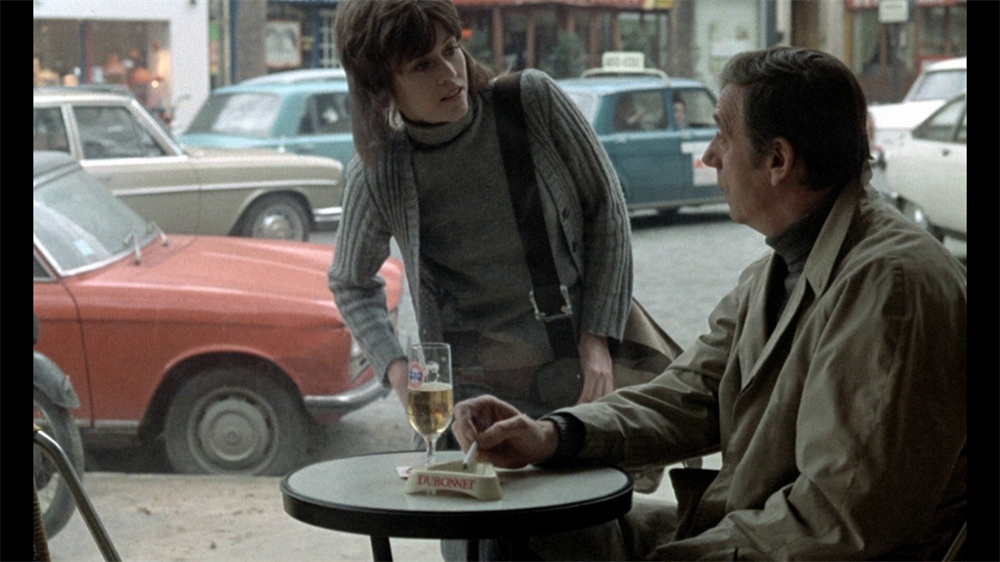
"everything is fine"
Afterwards, the teacher led everyone to discuss in detail, and we gradually realized that every frame of "Everything is Okay" is actually challenging the audience: this is definitely a political, radical, and revolutionary film. And its starring is Jane Fonda, a big star that everyone is familiar with. Later, I became a director myself, and the short film "I'm Not Here" (I'm Not Here) also shot a repeated mobile camera shot in the supermarket, which was inspired by "Everything is OK".
When I heard the news of Godard's death, I dug out "Godard on Godard" on the shelf and found the passage that left a deep impression on me when I first read it: "I'm not only making movies when I'm making movies, I'm making movies when I'm dreaming, eating, reading, and talking to you." What Godard taught me is that making movies is to occupy every moment of my life. He also let me know that to free myself from the so-called rules of film, always remember to be innovative, keep a playful mind, and never stop learning new things.
"He showed us the way forward"
Luca Guadagnino, Italian director, representative works: "Please call me by your name" and "I am love"
In 1985, when I was 14 years old, I first experienced the extraordinary power of the name Jean-Luc Godard—or rather, his initials, which have long since become legendary. That day, in the dark and depressing small town of Palermo where I spent my youth, I suddenly saw a group of people screaming and screaming at the entrance of the cinema, and what was showing in the cinema was his work "Homage to Mary" ".
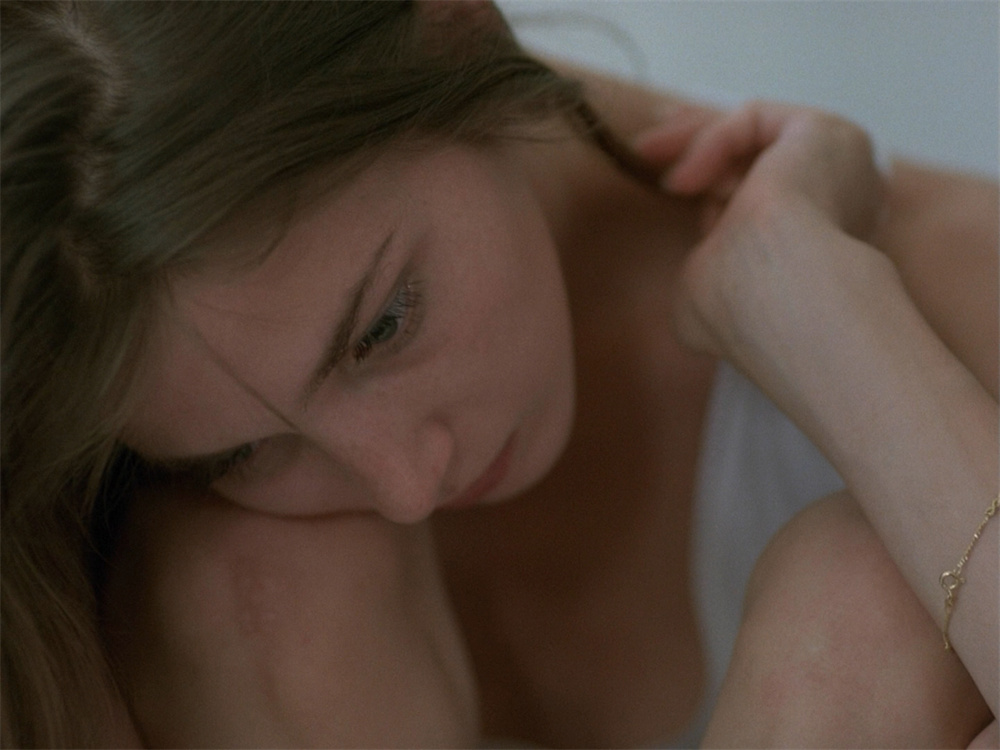
"Homage to Mary"
This makes me wonder, what kind of movie can arouse such intense indignation from the audience? Out of curiosity, I bought a ticket to watch this movie, and I also understood the power of a movie from its splendid but concise beauty. JLG is like a beam of light that points us the way forward through one of his films and one of his thoughts after another. Today we lost him forever, which made me feel a little more lonely all of a sudden, but fortunately his movies are still there, and we will never be short of guides.
"He's like a hammer that smashes all those smug movies to smithereens"
Mark Cousins (Mark Cousins), British film critic, director, representative work: "Film History"
Godard is a depressing cardinal and a vivid preacher. The first thing I watched was his "Weekend", which gave me a lot of stimulation, and the whole person felt on a new level. This is Godard, he will force you to stand on the moral high ground and force you to watch movies that are entertaining and promiscuous. Then I watched the emotionally charged "Lai Huo" and "I Know A Little About Her", and found that all the female-centered films in his films would be relatively easier for me to accept. There is also "Homage to Mary", the erotic elements in it are very contradictory in themselves. In short, for Godard, the cinema has never been just a getaway.
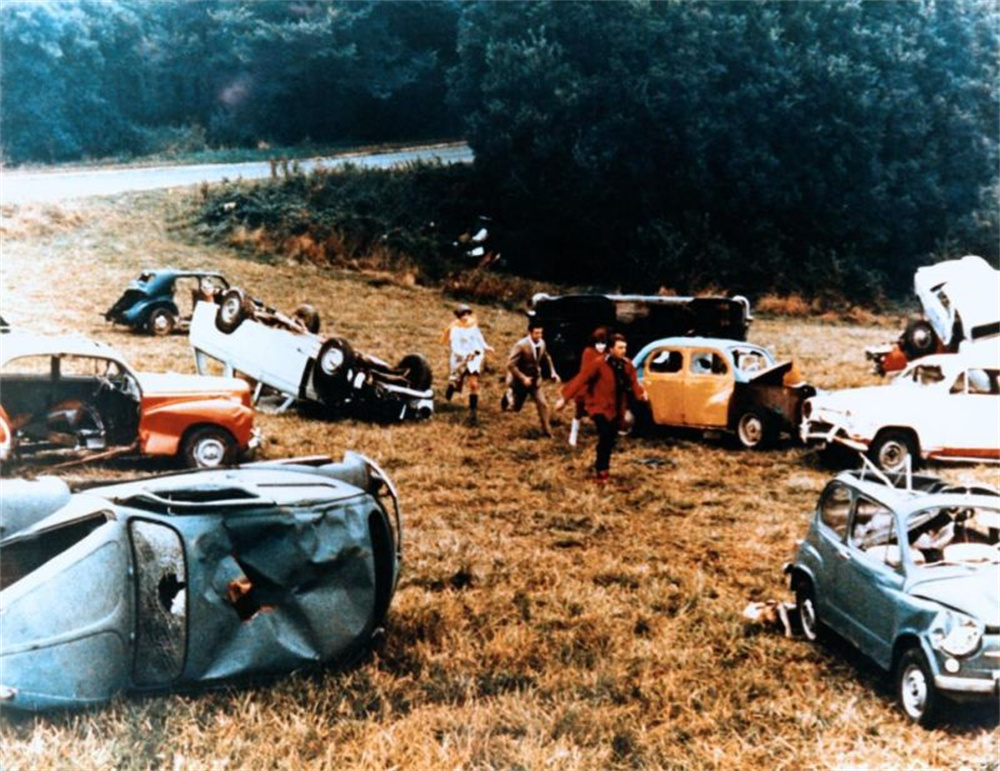
"weekend"
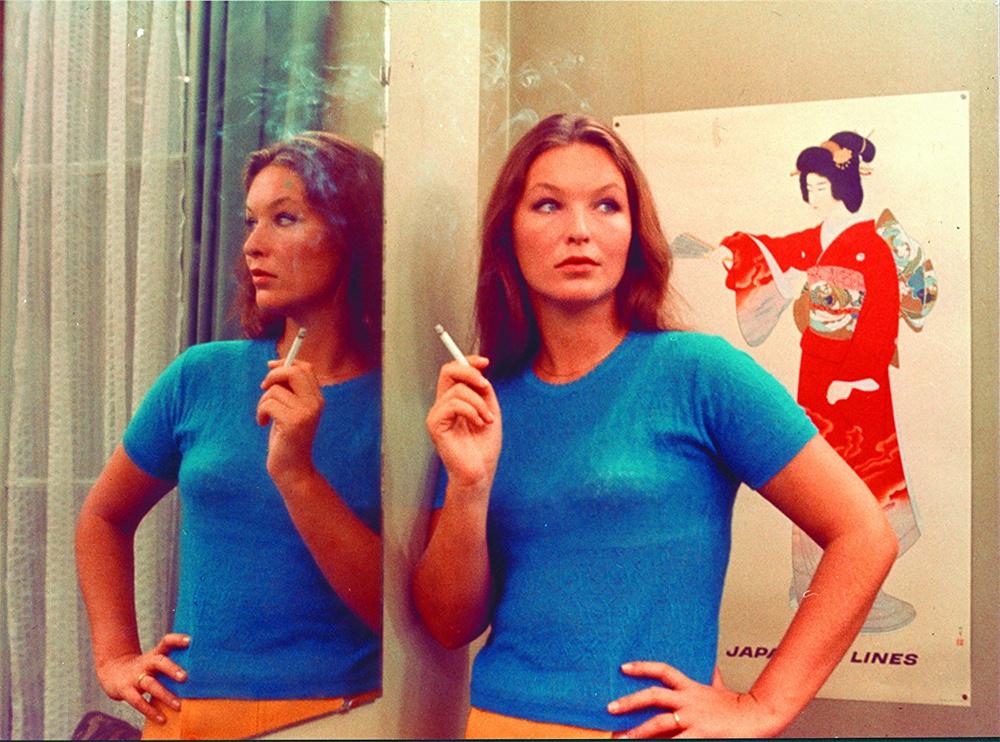
"I know a little about her"
The dense narration, text, and visual montages of Godard’s films leave my brain feeling overwhelmed most of the time. In this movie marathon, he has already surpassed the vast majority of his peers, leading them more than one lap. What is the cinematic legacy he left us after his death? I think he's like a hammer, like smashing glass, smashing all those smug movies to smithereens. In fact, I went to Swiss basil not long ago, thinking that maybe I might stumble upon him walking the dog or something.
"Before him and after him, movies are two completely different concepts"
Kelly Reichardt, American director, representative work: "The First Cow"
American art critic Dave Hickey, who died last year, once said that Andy Warhol changed the way people see the world, the world before Andy Warhol and Andy Warhol The world after that is two completely different worlds. So, is Godard the same? What a movie should look like, before him and after him, are two completely different concepts. He is so productive and so long-lived, leaving us a deep well, inexhaustible and inexhaustible.
"Insanely bold and cool, but maybe also lacking some humanity"
Kevin Macdonald, British director, representative works: "The Last Dictatorship" and "The Ladder: The Art of Cai Guoqiang"
Godard changed cinema. His films have a conscious awareness that no one has ever seen before, and when you watch his films, you always realize that you are watching a film, just like watching a Brecht play. His film always reminds you of how it was made, where its roots came from, and what influences it was influenced by (usually early American gangster films, and later Vertov and Russian Constructivism). For example, "Exhausted", "Outlaws" and "Women Are Women", these wonderful works that break the tradition and are full of coolness, are actually the core of filmmaking. In contrast, he has little interest in the story itself or the fate of the characters. He focuses on the ideas behind his films and how they affect us. He started out as a film critic and has been a film critic all his life.
It is no exaggeration to say that Godard spawned the generation from Richard Lester to Quentin Tarantino to Soderbergh to Céline Sciamma Another generation of filmmakers—in other words, almost all modern films. Those early works of his, which still seem bold to this day, make my heart flutter. But his later films were exhausting for me: highly politicized, highly confrontational. He really liked the so-called "provocative bourgeoisie" approach, so this It must also mean that I am Bourgeois, because his later films are really "provocative" to me. But I really liked his Rolling Stones documentary "One Plus One," which interestingly juxtaposed the boring scenes of the band's rehearsals with radical street politics. At the time, it was the best film about rock music and the role of rock and roll in society, perhaps only comparable to "Give Me Asylum."
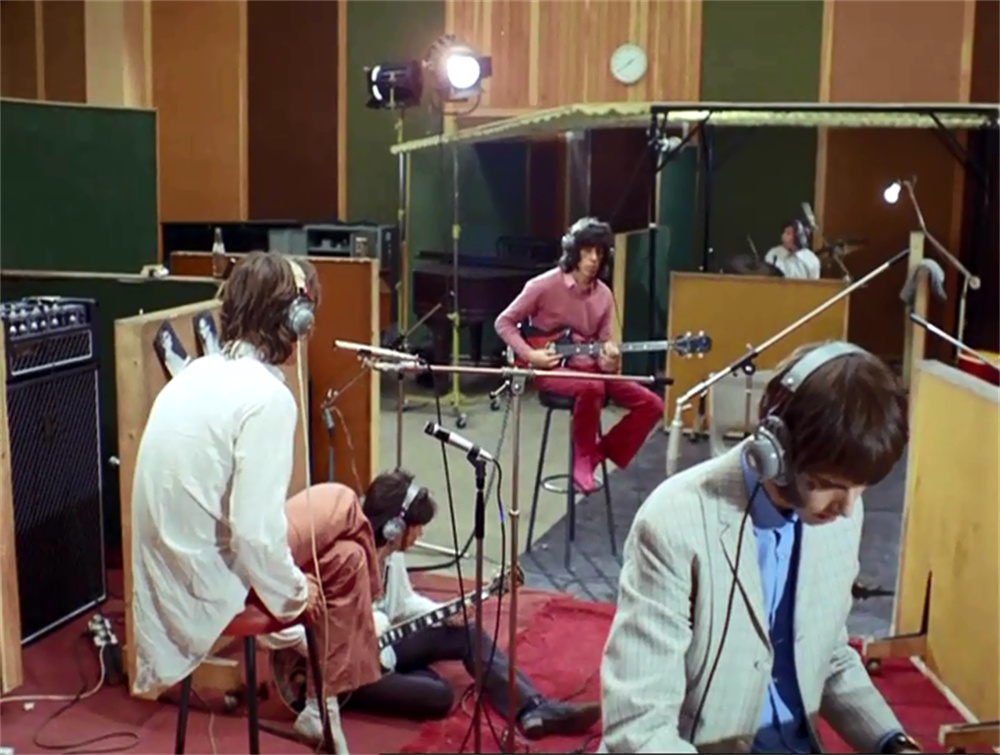
"one plus one"
I used to work with Caroline Champetier, Godard's usual director of photography in the 1980s and 90s. Sometimes she would tell me anecdotes about the "Master", and it always fascinated me. Most memorable was her saying that Godard had thought about a remake of "Anna Karenina," so she went to Moscow to film in those crumbling post-Soviet train stations. The problem was that Godard didn't go with her, he was in Paris, directing by phone. Somehow, I always felt that this was the best summary of what I had in mind about Godard: ridiculously daring, cool, but maybe also lacking some humanity.
"Just the titles of his movies are enough for me to worship."
Abel Ferrara (Abel Ferrara), American director, representative works: "Bad Lieutenant", "Jiang Hu Bai Shi", "Pasolini"
Right now I'm sitting in a cab and the Rolling Stones' "I Can't Get No Satisfaction" is playing on the radio. The female DJ read out the year it was created: 65, 1965. That was the age of Godard. I started making movies in 1967 when I was 16, and it wasn't long before I realized that movies in other places besides Hollywood have mountains beyond the mountains. So I will look for the things of those great directors, read all his works at once, digest and absorb them, and then leave it there, and then go to find the next one. Only Godard, I have never been able to say goodbye to him.
Just like Pasolini, Godard's texts and films are very special, making people watch them often. When I was a kid, I experienced the death of JFK, Martin Luther King, and Malcolm X over a period of several years, so I always felt that everything was going to happen again and again, and that Godard would be like him soon after. People followed. It turned out not to be the case, and there has never been a director like him again. In fact, in the entire film history, apart from Pasolini, there is no other person who can even be close to Godard. In front of Godard, I will always be a director in swaddling clothes, and the titles of his films are enough to make me worship: "Lai Huo", "One Plus One", "A Woman is a Woman", " Alpha City and my favorite title, All the Boys Named Patrick. It's a sad day.
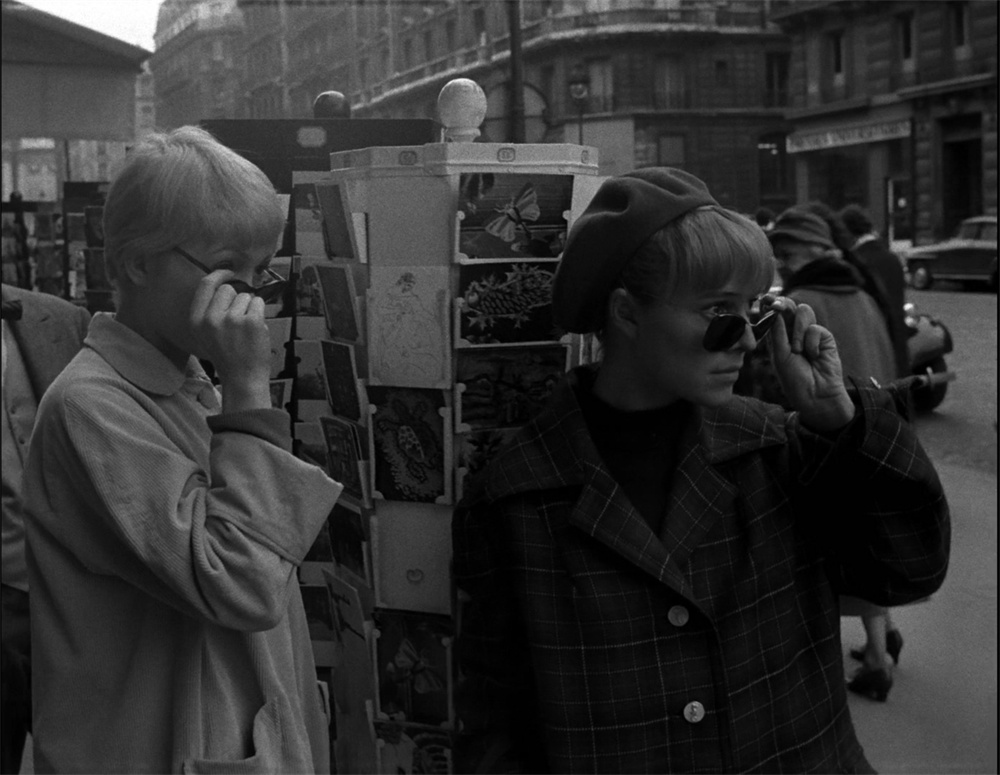
"All the Boys Are Named Patrick"
"This encouragement will always be treasured in my heart"
Terence Davies, British Director
Godard is to the film what Proust and Joyce are to the novel. The people of Sri Lanka have passed away, but their influence on those who came later will endure. Godard's influence, Godard's film passion, let us latecomers stand up and yearn for it. His passing is a loss for all of us. It's too hard to say goodbye. I believe that one day we will meet again. I have never known him, but he once praised my movie to someone, and this encouragement will always be cherished in my heart. So, ladies and gentlemen, please take your hats off and stand up in tribute to the passing of this genius.
"It's all his fault, it made me go down this road of no return"
Peter Webber, British director, representative works: "Girl with a Pearl Earring" and "Young Hannibal"
One day in the late 1970s, as a teenager, I went to the Daddy Kool record store in Portobello Road, London, trying to buy some reggae records, only to find that the store was closed. It was raining, and I was at a loss, so I decided to go to the nearby Electric Cinema to see what was on. The theater was run down at the time. When I arrived, Pierrot the Madman was about to start showing, and I didn't know anything about the movie beforehand, so I bought a ticket and went in. As a result, I was completely dumbfounded, it looked like a thriller, but it was unlike anything I'd ever seen. The actor would turn around and speak directly to the camera. The start and stop of the soundtrack also deliberately force you to pay attention to how they manipulate the emotions of the audience. Characters in the play will suddenly sing or perform comical jokes at random, switching instantly between various movie genres. Pierrot is both warm and romantic, cynical and mischievous, all while touching your heart from start to finish. That day, too, I fell completely and utterly in love with Godard's muse, Anna Karina.
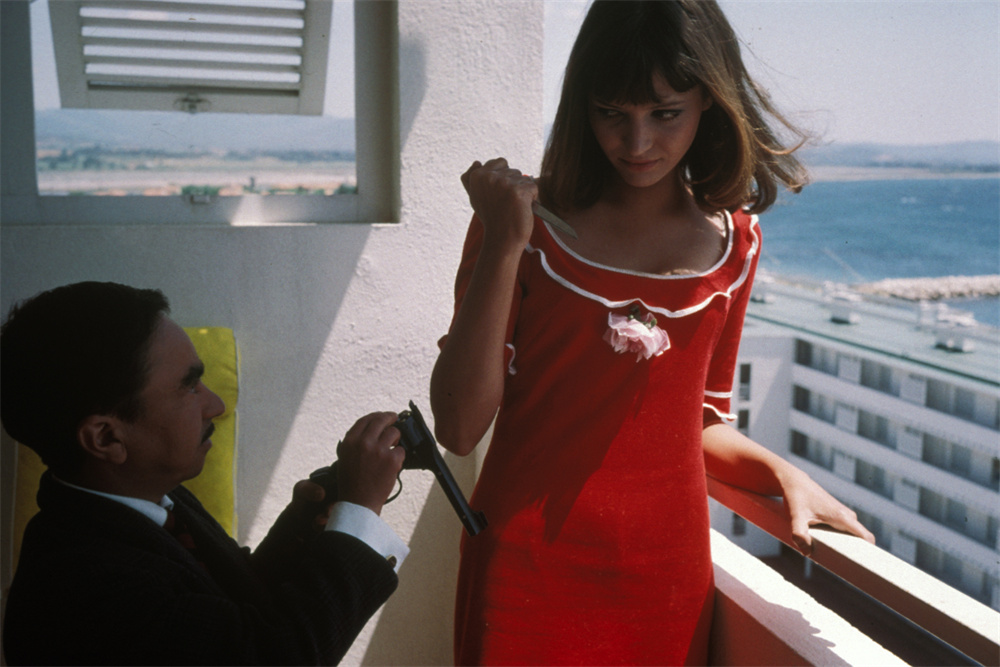
"Piero the Madman"
After the movie was over, I realized for the first time what a film director really is. The rules that most movies follow are blown to smithereens by this movie, and it's blown up to brilliant effect. After the movie ended, I walked out of the cinema, walked into the heavy rain, and muttered to myself, "This is what I want to do, and I also want to make movies." For me at the time, this was really an unreasonable A real dream, but in the end it came true - Godard is the only one to blame, it's all his fault for putting me on this path of no return. Decades later, I'm back at Electric Cinemas, which has been renovated and refreshed, and I'm there to cast the cast for my first film, The Girl with a Pearl Earring. This is where my movie dream started and it is realized here, and it feels like a complete success.
"Instead of watching the movies he made, it's better to hear how he talks about the movies"
John Boorman, British director, representative works: "The General", "The Professor and the Madman"
Godard's early films, vivid and romantic, are truly French New Wave works. Later, the intellectual flavor in his films became stronger and more obscure. Every time he has a film premiering at the Cannes Film Festival, his press conference is always packed with people. At that time, I thought it was better to hear what he had to say about the film than to watch the films he made. Of course, he is definitely a great innovator, taking the art of film to the extreme, even beyond all limits.
"Don't think that he is very casual in filming"
Isabelle Huppert, French actor, representative works: "Grim Ritual", "Piano Teacher", "The Future"
My first contact with him was on the phone. He called and said that he wanted to play with me and hoped to meet. I said yes, and a few minutes later he showed up at my house and started talking about "Escape From Each Other." He likes to call it his "second debut," because here he reverts to a relatively more traditional form of film, leaving the experimental and political cinematic style of the film for a long time.
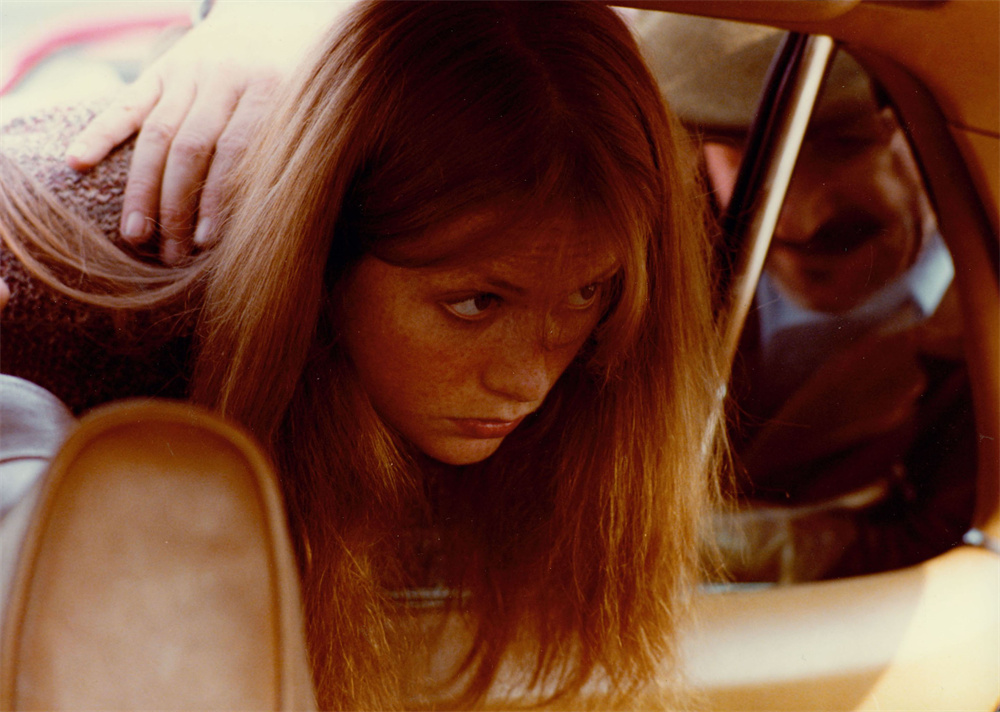
"Escape Each Other"
"Escape From Each Other" didn't have a full script, and all he handed me were some scenes, some poems, songs, and paintings. All he told me was that my character in the film was also called Isabel. At that time, I was shooting Michael Cimino's "Heaven's Gate" in the United States. The original time was up and the film was not finished, so Godard personally came to Montana to see how I was doing and have a chat with me.
What impressed me the most while filming "Escape From Oneself" was the way he directed our lines. Don't think that he is very casual in filming. In fact, his requirements are quite clear in many places, such as the tone and tone of the actors' lines, there are clear requirements. In this film, he asks us to speak the tone of certain lines with a sense of quotation or oracle, so that they are no longer just ordinary dialogue, but have a lot of aftertaste and weight. Also, in the two films I did with him, there was absolutely nowhere for the actor to improvise, he knew exactly what he wanted and never hesitated. But he also encouraged us to think more about ourselves, write down whatever comes to mind, and show it to him. He has always said that he likes thinking a lot, and he likes that the characters in his films are in a state of thinking. I was flattered by the compliment he told me the other day that I looked like someone who was thinking a lot.
Later, when we were shooting The Passion, Godard wanted me to stutter when I said my lines, because I was playing a working-class character, and he felt that this abstract approach could better represent the working class in the face of various A vulnerable situation in difficult times. At a press conference at the Cannes Film Festival one year, he also said that French cinema has always been too contemptuous of the working class and has not done a good job of filming stories about them.
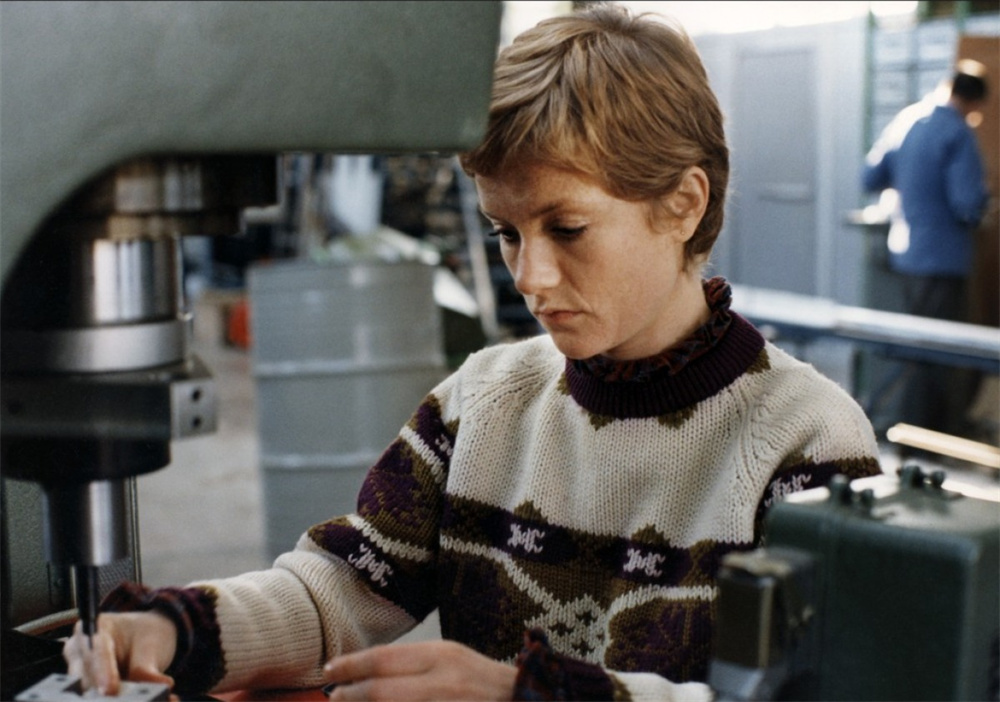
"The Passion"
As for his last few films, they are, in my opinion, just as powerful, fun, and edgy as they were back then. He used the film to ask questions all the way to the end. He's a visionary, so now that he's gone, it's kind of like being orphaned by the rest of us.
